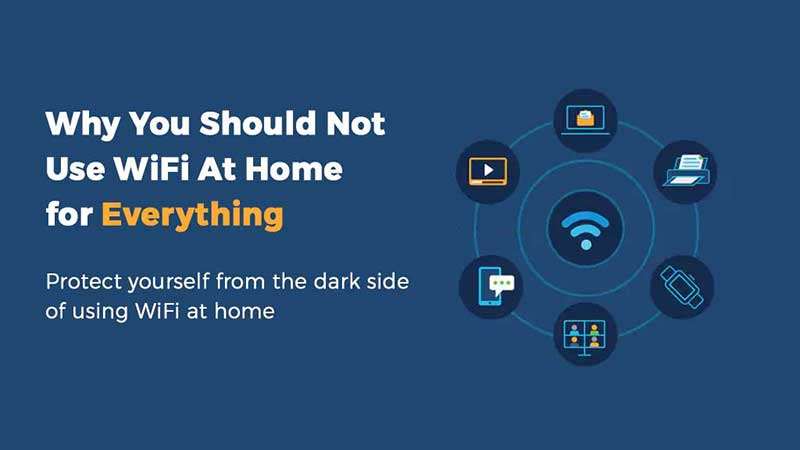From learning opportunities to mental health challenges, understand the impact of social media on students. Tips for a Healthy Social Media Use.

In today’s world where everyone’s connected through the internet, social media is like a big part of our everyday routine. Especially for students, apps like Facebook, Instagram, Twitter, and Snapchat have a really big impact. This article wants to look closely at impact of social media on students – both the good and not-so-good parts of their online lives.
Positive Impact of Social Media on Students
1. Global Connectivity:
One really cool thing about social media for students is that it lets them make friends with people from all over the world. On sites like Facebook, Instagram, and Twitter, students can chat with peers and learn about different cultures.
2. Information and Learning Opportunities:
Social media is like a big library where you can find lots of useful stuff for learning. If you’re a student, you can join groups and communities that talk about the things you’re studying. This helps you share what you know and learn from others.

3. Access to Educational Resources:
Social media is like a helpful tool for learning. It has lots of different information, ideas, and things to learn. Teachers and experts can use social media to share information, talk with students, and encourage learning that lasts a lifetime.
4. Enhanced Communication:
Social media changed the way we talk to each other. Now, students can talk to friends, teachers, and smart people from all over the world. This helps them work together on projects, share ideas, and feel like they’re part of a big global group.
5. Networking Opportunities:
Building a professional network has never been easier. LinkedIn, in particular, has emerged as a powerful tool for students to connect with professionals in their field of interest. This networking can lead to internships, mentorships, and even job opportunities post-graduation.

Also Read: 5 Easy Trics: How to Send Large File Using WhatsApp
6. Personalized Learning and Adaptive Education:
Social media can help make learning special for each student. It can change lessons and content to match what each student likes and needs.
7. Skill Development:
Active participation in social media encourages the development of various skills such as communication, critical thinking, and digital literacy. Students like to make and share things online, getting better at being creative and learning how to use digital media.
8. Global Awareness and Cultural Exchange:
Social media lets you see and learn about different cultures and ways of thinking. It helps people all over the world connect, work together on projects, and learn new things.
Negative Impact of Social Media on Students
1. Distraction and Procrastination:
Social media is like a two-sided coin. On one side, it gives us lots of information, but on the other side, it can be really distracting. Students might get caught up in always getting messages, which can make them put off work and not get as much done.

2. Multitasking and Divided Attention:
Social media’s constant stream of notifications and engaging content can make it challenging for students to focus on deep learning and complex tasks. Multitasking between social media and academic work can lead to reduced productivity and impaired learning outcomes.
3. Sleep Deprivation and Impaired Cognitive Function:
Staying up late on social media can mess up your sleep, making you tired and not able to think as well. When students don’t get enough sleep, it’s hard for them to focus, remember things, and make good choices. This can make their schoolwork not go so well.
4. Cyberbullying and Mental Health Issues:
Sometimes, not-so-nice things happen on social media. Cyberbullying is a real problem, and students can be targets for mean behavior online. Also, feeling like you always have to show a perfect version of yourself online can make you feel anxious, sad, or not so good about yourself.
5. Time Management Challenges:
Even though social media is useful for learning and staying connected with friends, it can also be a big problem for managing time well. Students might spend too much time scrolling through posts, and this can make them procrastinate and not concentrate on their studies.
You May Read: Importance of Time Management for Students – 12 Most Valuable Tips
6.Impact of social media on students academic performance:
Excessive use of social media has been linked to a decline in academic performance. Late-night scrolling, constant notifications, and the pressure to keep up with trends can interfere with sleep patterns and study habits, negatively impacting overall academic success.
7. Privacy Issues:
Students often share personal information on social media without fully grasping the potential consequences. From future employability to online safety, the lack of privacy awareness can have lasting effects. Educating students about the importance of safeguarding their personal information is crucial in the digital age.
Strategies for Healthy Social Media Use:
1. Establishing Boundaries:
Helping students control how much they use social media can lessen the bad effects. Tell them to choose certain times for using social media and make study times free from tech to boost concentration and get more work done.
2. Promoting Digital Literacy:
Educating students about digital literacy, including discerning reliable sources, fact-checking, and understanding online privacy, is crucial. Developing these skills empowers students to navigate the digital landscape responsibly.
3. Promote Critical Thinking and Media Literacy:
Help students develop smart thinking skills to judge the information they find on social media. Teach them to know what sources to trust, spot false information, and steer clear of only hearing the same ideas. Tell them to double-check facts and be careful when sharing things online.
4. Encourage Digital Wellness Practices:
Promote digital wellness practices, such as taking regular breaks from screens, engaging in physical activities, and prioritizing face-to-face interactions. Encourage students to seek help when facing challenges or concerns related to social media use.
5. Encouraging Offline Activities:
Balancing online and offline activities is essential for a healthy lifestyle. Encouraging students to participate in physical activities, socialize in person, and pursue hobbies offline can contribute to overall well-being.
Tips for Balancing Social Media and Academics:
- Set Specific Times for Social Media Use: Establish dedicated time slots for checking social media to avoid constant interruptions during study sessions.
- Utilize Social Media for Educational Purposes: Encourage students to use social media platforms for educational purposes, such as joining study groups, following educational channels, or participating in online discussions.
- Use Productivity Apps: Utilize apps that limit social media usage during study hours to maintain focus.
- Create a Study-Friendly Environment: Designate a quiet and distraction-free space for studying to minimize the temptation of social media.
- Encourage Responsible Online Behavior: Remind students to be mindful of their online behavior, respecting others and protecting their privacy.
Conclusion:
Social media has both good and not-so-good effects on students. It’s like a mixed bag of opportunities and challenges. On the bright side, it helps students learn, communicate, and develop skills. But, on the flip side, it can impact how well they do in school and how they feel mentally. Teachers and parents can help by teaching students to use social media wisely and understand it better. It’s important to give students the skills and knowledge to do well in today’s digital world.
——————————-
Ref: Impact on social media in students life

Hi I am Harish. I am a blogger, writer. I am also a photographer. I love to share my thoughts and experiences through the words in my blog. Thank you.



